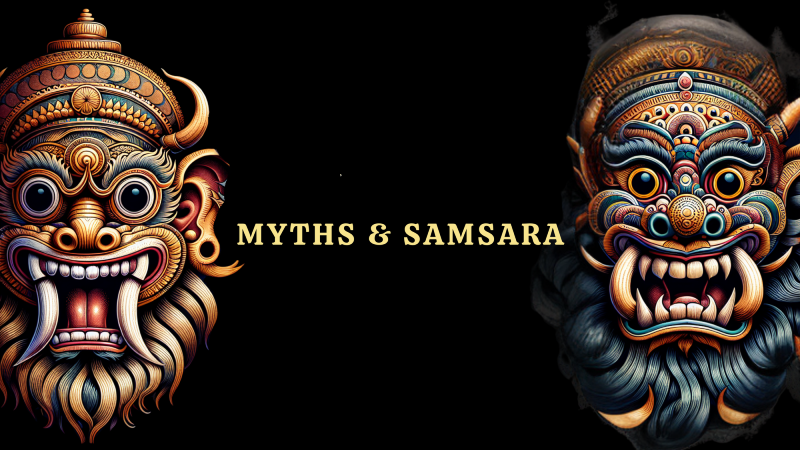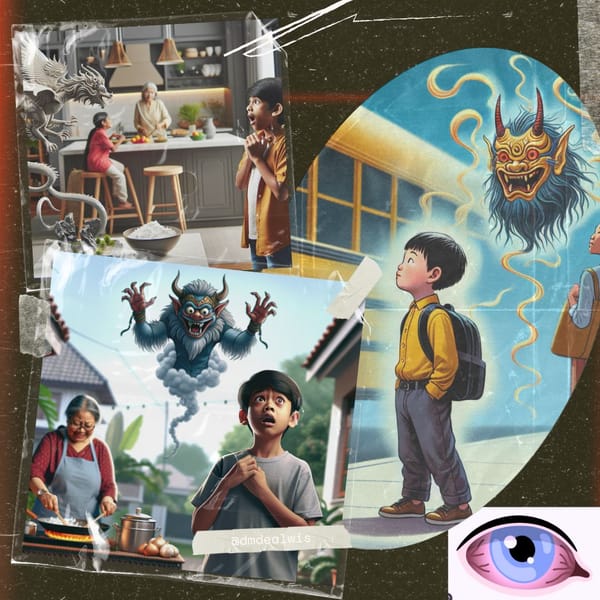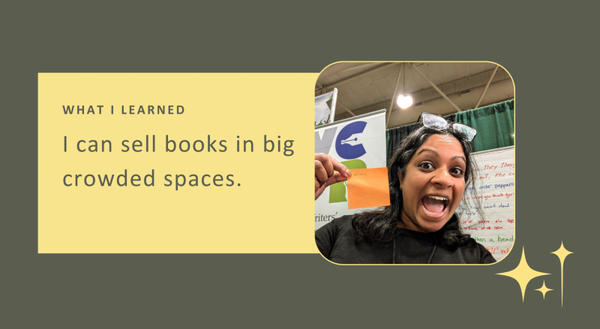Introducing Myths & Samsara
Through Buddhist cosmology, we revive ancient tales and blend folklore with world-building. Discover myths, spiritual lore, and a fantasy saga where time is a labyrinth and the dead do not rest.

Episode 00
Well, I've done it. I've initiated a podcast.
Myths & Samsara traces the myths and echoes of Sri Lanka and the Indian subcontinent, exploring samsara as a vast, shifting cycle where gods battle, mortals transform, and souls drift across ages.
Step beyond memory’s edge—subscribe to the journey.

Episode 00 - Introduction to Myths & Samsara
Why Myths & Samsara?
I've tried following a variety of podcasts on mythology. They're all repeats of the European tropes walking through Roman, Greek, Nordic, and Celtic mythology. South Asian mythology skirts Hindu mythology or is overly focused on East Asian and Tibetan folklore.
I listen to the occasional episode of The Ranveer Show. He deep dives into the mythology and beliefs of the Indian Subcontinent but his show's religious and spiritual under notes are a bit extreme at times.
I finally stumbled on the youtube channels of Ajahn Sona and Ajahn Punnadhammo. These are two humble Buddhist monks of Canadian origin who are bringing the concept of Buddhist Cosmology to the forefront. Trust me, most Buddhists live by Western and European paradigms. I had no clue the vast richness of this tapestry until I started deep diving.
Actually, I had a clue. I had a hunch. I had a feeling. My gut had me writing in this world and exploring the journey of men to gods and gods to men long before I stumbled on these monks work.
We need a paradigm shift.
There aren't many westerners or easterners exploring from the perspective where the Gods aren't centre stage.
Samsara is more than the cycle of death and rebirth. Samsara is how we change over time. How we ‘transform’ through evolution and devolution. To understand Samsara, one must understand the Buddhist Cosmos--the system within which life exists.
Why the Buddhist Cosmos? Is it the oldest system unbiased by faith and belief in single or multiple gods? Within its study, we find the roots and parallels to many Indo-European and European-based systems.
Want to know more? Subscribe to the podcast.
Behind the scenes:
My favourite podcasts are those where people have conversations that lead to insightful exposition. Think What Now? with Trevor Noah and Diary of a CEO with Steve Bartlett. Monologues are not my thing. I tried recording the introduction on my own, and it came out flat.
Instead, I re-recorded it after being pumped up on a call with Lisa G. I'm still overly sensitive about how I pronounce "Myths" (Mitts) and my lisp. Rohan and Lisa have reassured me that I shouldn't be self-conscious. To be honest, Historian Lucy Worsley is my hero when it comes to narrations with a lisp.
I chose YouTube because as someone with ADHD, I appreciate sound accompanied by images to capture my straying mind. This is also the reason some of the longer historical podcasts like Empire hosted by William Dalrymple and Anita Anand and Anita Anand is harder for me to digest. I enjoy a good story as found in Lore by Aaron Mahnke.
Subsequent episodes will feature conversations between friends that lead to more insightful expositions. It's a work in progress.
Thank you Lisa & Eunah for collaborating on me with this initiative. Thank you to all the supporters (or those tired of hearing me talk about my work) who suggested I create a podcast.




